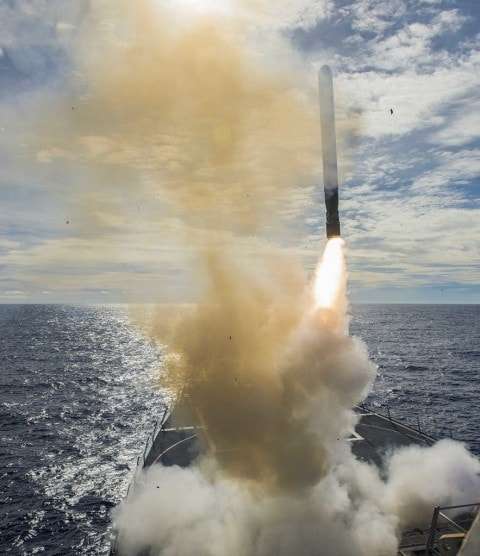The Volokh Conspiracy
Mostly law professors | Sometimes contrarian | Often libertarian | Always independent
Partisan bias and public opinion on Trump's Syria strike

A recent Washington Post-ABC poll found that 51 percent of Americans approve of Donald Trump's recent missile strike on Syria, while 40 percent disapprove. As James Hohmann of the Post points out, the really interesting aspect of this poll is the partisan shift relative to the breakdown of opinion the last time a strike like this was contemplated, back in 2013:
In 2013, when Barack Obama was president, a Washington Post-ABC News poll found that only 22 percent of Republicans supported the U.S. launching missile strikes against Syria in response to Bashar al-Assad using chemical weapons against civilians.
A new Post-ABC poll finds that 86 percent of Republicans support Donald Trump's decision to launch strikes on Syria for the same reason. Only 11 percent are opposed.
It is difficult to explain this shift by anything other than partisan bias. The case for a US strike in 2013 was at least as strong as it is today. In both cases, Assad had just used chemical weapons against civilians, and was also slaughtering far larger numbers of innocent people with conventional weapons. If anything, the risk of a strike was lower in 2013 than now, because at that time there were no Russian troops on the ground aiding Assad. Thus, a US attack in 2013 would not have carried as high a risk of a confrontation with Russia.
For a great many Republicans, the difference between 2013 and 2017 was largely a matter of who was in the White House. They were unwilling to support a strike by a Democratic president, but far more enthusiastic about a very similar (except possibly more risky) action by a Republican one. Such partisan bias on the part of Republican voters mirrors that of many GOP members of Congress. Here too, many who opposed a possible Obama strike in 2013 are perfectly happy to support Trump today.
The Post-ABC poll indicates somewhat greater consistency on the part of Democrats. Some 37 percent of them back Trump's strike, compared to a statistically indistinguishable 38 percent who backed a strike in 2013. However, the two cases are not entirely parallel. In 2013, there was no actual strike, as Obama was lukewarm about the idea and ultimately chose not go through with. Had he actually launched an attack, more Democrats might have rallied around their party's leader in the aftermath.
Be that as it may, Democrats, like Republicans, have demonstrated considerable partisan bias in assessing past military actions. A major case in point is the decline of the left-wing anti-war movement during the Obama era, despite Obama's starting two wars without congressional authorization, and pursuing other policies that Democratic anti-war activists vehemently protested under Bush. As sociologists Michael Heaney and Fabio Rojas show in in an important book, the Bush-era antiwar movement largely evaporated under Obama in large part because of many of its leaders and activists were partisan Democrats who did not want to oppose a president of their own party. Like Republicans who approved of Trump's Syria strike but opposed very similar action contemplated by Obama, many Democrats gave Obama a pass on policies similar to those they vehemently opposed under Bush.
Just as in 2013, there is a plausible case both for and against taking action against Assad. I myself am somewhat torn. I welcome Trump's new, seemingly more defensible, view of Assad and his Russian patrons, but fear that a limited intervention is unlikely to have much beneficial effect, and that Trump might embark on a wider intervention without getting the congressional authorization required by the Constitution. I expressed very similar concerns back in 2013. In both cases, I recognize that there was considerable room for reasonable disagreement. The problem here is not that people disagree over a given military intervention, but that much of the disagreement is driven by partisanship rather than any objective attempt at weighing potential costs and benefits.
Partisan bias like this affects public opinion on a wide range of issues, not just military action. It corrupts public opinion and tends to undermine efforts to hold political leaders accountable for their actions.
Sadly, partisan bias is just one facet of the broader problem of widespread political ignorance and bias in assessing policy issues. There is no easy solution to these problems. But we should at least recognize that we do in fact have a serious problem, that it is not limited to one side of the political spectrum, and that we had better start taking it seriously.


Show Comments (0)